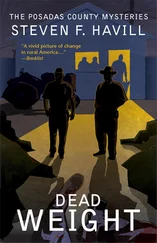Steven Levitt - Freakonomics
Здесь есть возможность читать онлайн «Steven Levitt - Freakonomics» весь текст электронной книги совершенно бесплатно (целиком полную версию без сокращений). В некоторых случаях можно слушать аудио, скачать через торрент в формате fb2 и присутствует краткое содержание. Год выпуска: 2005, ISBN: 2005, Издательство: HarperCollins Publishers Ltd., Жанр: Прочая научная литература, на английском языке. Описание произведения, (предисловие) а так же отзывы посетителей доступны на портале библиотеки ЛибКат.
- Название:Freakonomics
- Автор:
- Издательство:HarperCollins Publishers Ltd.
- Жанр:
- Год:2005
- ISBN:ISBN 0-06-083822-1
- Рейтинг книги:5 / 5. Голосов: 1
-
Избранное:Добавить в избранное
- Отзывы:
-
Ваша оценка:
- 100
- 1
- 2
- 3
- 4
- 5
Freakonomics: краткое содержание, описание и аннотация
Предлагаем к чтению аннотацию, описание, краткое содержание или предисловие (зависит от того, что написал сам автор книги «Freakonomics»). Если вы не нашли необходимую информацию о книге — напишите в комментариях, мы постараемся отыскать её.
Freakonomics — читать онлайн бесплатно полную книгу (весь текст) целиком
Ниже представлен текст книги, разбитый по страницам. Система сохранения места последней прочитанной страницы, позволяет с удобством читать онлайн бесплатно книгу «Freakonomics», без необходимости каждый раз заново искать на чём Вы остановились. Поставьте закладку, и сможете в любой момент перейти на страницу, на которой закончили чтение.
Интервал:
Закладка:
In 1984, when his research institute fell under new management, Feldman took a look at his career and grimaced. He decided to quit his job and sell bagels. His economist friends thought he had lost his mind, but his wife supported him. The last of their three children was finishing college, and they had retired their mortgage.
Driving around the office parks that encircle Washington, he solicited customers with a simple pitch: early in the morning, he would deliver some bagels and a cash basket to a company’s snack room; he would return before lunch to pick up the money and the leftovers. It was an honor-system commerce scheme, and it worked. Within a few years, Feldman was delivering 8,400 bagels a week to 140 companies and earning as much as he had ever made as a research analyst. He had thrown off the shackles of cubicle life and made himself happy.
He had also—quite without meaning to—designed a beautiful economic experiment. From the beginning, Feldman kept rigorous data on his business. So by measuring the money collected against the bagels taken, he found it possible to tell, down to the penny, just how honest his customers were. Did they steal from him? If so, what were the characteristics of a company that stole versus a company that did not? Under what circumstances did people tend to steal more, or less?
As it happens, Feldman’s accidental study provides a window onto a form of cheating that has long stymied academics: white-collar crime. (Yes, shorting the bagel man is white-collar crime, writ however small.) It might seem ludicrous to address as large and intractable a problem as white-collar crime through the life of a bagel man. But often a small and simple question can help chisel away at the biggest problems.
Despite all the attention paid to rogue companies like Enron, academics know very little about the practicalities of white-collar crime. The reason? There are no good data. A key fact of white-collar crime is that we hear about only the very slim fraction of people who are caught cheating. Most embezzlers lead quiet and theoretically happy lives; employees who steal company property are rarely detected.
With street crime, meanwhile, that is not the case. A mugging or a burglary or a murder is usually tallied whether or not the criminal is caught. A street crime has a victim, who typically reports the crime to the police, who generate data, which in turn generate thousands of academic papers by criminologists, sociologists, and economists. But white-collar crime presents no obvious victim. From whom, exactly, did the masters of Enron steal? And how can you measure something if you don’t know to whom it happened, or with what frequency, or in what magnitude?
Paul Feldman’s bagel business was different. It did present a victim. The victim was Paul Feldman.
When he started his business, he expected a 95 percent payment rate, based on the experience at his own office. But just as crime tends to be low on a street where a police car is parked, the 95 percent rate was artificially high: Feldman’s presence had deterred theft. Not only that, but those bagel eaters knew the provider and had feelings (presumably good ones) about him. A broad swath of psychological and economic research has shown that people will pay different amounts for the same item depending on who is providing it. The economist Richard Thaler, in his 1985 “Beer on the Beach” study, showed that a thirsty sunbather would pay $2.65 for a beer delivered from a resort hotel but only $1.50 for the same beer if it came from a shabby grocery store.
In the real world, Feldman learned to settle for less than 95 percent. He came to consider a company “honest” if its payment rate was above 90 percent. He considered a rate between 80 and 90 percent “annoying but tolerable.” If a company habitually paid below 80 percent, Feldman might post a hectoring note, like this one:
The cost of bagels has gone up dramatically since the beginning of the year. Unfortunately, the number of bagels that disappear without being paid for has also gone up. Don’t let that continue. I don’t imagine that you would teach your children to cheat, so why do it yourselves?
In the beginning, Feldman left behind an open basket for the cash, but too often the money vanished. Then he tried a coffee can with a money slot in its plastic lid, which also proved too tempting. In the end, he resorted to making small plywood boxes with a slot cut into the top. The wooden box has worked well. Each year he drops off about seven thousand boxes and loses, on average, just one to theft. This is an intriguing statistic: the same people who routinely steal more than 10 percent of his bagels almost never stoop to stealing his money box—a tribute to the nuanced social calculus of theft. From Feldman’s perspective, an office worker who eats a bagel without paying is committing a crime; the office worker probably doesn’t think so. This distinction probably has less to do with the admittedly small amount of money involved (Feldman’s bagels cost one dollar each, cream cheese included) than with the context of the “crime.” The same office worker who fails to pay for his bagel might also help himself to a long slurp of soda while filling a glass in a self-serve restaurant, but he is very unlikely to leave the restaurant without paying.
So what do the bagel data have to say? In recent years, there have been two noteworthy trends in the overall payment rate. The first was a long, slow decline that began in 1992. By the summer of 2001, the overall rate had slipped to about 87 percent. But immediately after September 11 of that year, the rate spiked a full 2 percent and hasn’t slipped much since. (If a 2 percent gain in payment doesn’t sound like much, think of it this way: the nonpayment rate fell from 13 to 11 percent, which amounts to a 15 percent decline in theft.) Because many of Feldman’s customers are affiliated with national security, there may have been a patriotic element to this 9/11 Effect. Or it may have represented a more general surge in empathy.
The data also show that smaller offices are more honest than big ones. An office with a few dozen employees generally outpays by 3 to 5 percent an office with a few hundred employees. This may seem counterintuitive. In a bigger office, a bigger crowd is bound to convene around the bagel table, providing more witnesses to make sure you drop your money in the box. But in the big-office/small-office comparison, bagel crime seems to mirror street crime. There is far less street crime per capita in rural areas than in cities, in large part because a rural criminal is more likely to be known (and therefore caught). Also, a smaller community tends to exert greater social incentives against crime, the main one being shame.
The bagel data also reflect how much personal mood seems to affect honesty. Weather, for instance, is a major factor. Unseasonably pleasant weather inspires people to pay at a higher rate. Unseasonably cold weather, meanwhile, makes people cheat prolifically; so do heavy rain and wind. Worst are the holidays. The week of Christmas produces a 2 percent drop in payment rates—again, a 15 percent increase in theft, an effect on the same magnitude, in reverse, as that of 9/11. Thanksgiving is nearly as bad; the week of Valentine’s Day is also lousy, as is the week straddling April 15. There are, however, a few good holidays: the weeks that include the Fourth of July, Labor Day, and Columbus Day. The difference in the two sets of holidays? The low-cheating holidays represent little more than an extra day off from work. The high-cheating holidays are fraught with miscellaneous anxieties and the high expectations of loved ones.
Feldman has also reached some of his own conclusions about honesty, based more on his experience than the data. He has come to believe that morale is a big factor—that an office is more honest when the employees like their boss and their work. He also believes that employees further up the corporate ladder cheat more than those down below. He got this idea after delivering for years to one company spread out over three floors—an executive floor on top and two lower floors with sales, service, and administrative employees. (Feldman wondered if perhaps the executives cheated out of an overdeveloped sense of entitlement. What he didn’t consider is that perhaps cheating was how they got to be executives.)
Читать дальшеИнтервал:
Закладка:
Похожие книги на «Freakonomics»
Представляем Вашему вниманию похожие книги на «Freakonomics» списком для выбора. Мы отобрали схожую по названию и смыслу литературу в надежде предоставить читателям больше вариантов отыскать новые, интересные, ещё непрочитанные произведения.
Обсуждение, отзывы о книге «Freakonomics» и просто собственные мнения читателей. Оставьте ваши комментарии, напишите, что Вы думаете о произведении, его смысле или главных героях. Укажите что конкретно понравилось, а что нет, и почему Вы так считаете.











